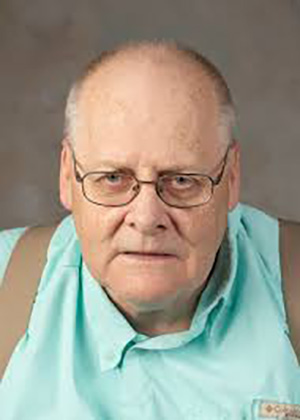By GREG MARKLEY
OPINION —
Last year in mid-December, I awoke in the middle of the night and yelled, “Chuck Norris.” My wife asked what the heck I was talking about this time. No, I was not planning to take on the martial arts champion and star of action films. Neither was I asking for a role in a remake of “Walker, Texas Ranger”. He is 16 years older than me, but he’s still strong.
I had interviewed Jessica Taylor, then a Republican candidate for the U.S. Senate. She told me Ted Nugent, rock star and fierce gun control opponent, endorsed her. I wondered how to handle that in a column and remembered that former GOP presidential hopeful Mike Huckabee ran a humorous TV ad with Norris. So I wrote “Nugent is Taylor’s Chuck Norris.” Meaning, Nugent is living proof that she is a firm Second Amendment supporter, just like Mr. Norris.
This is part one of a two-part series on how a writer can get ideas for columns on politics and higher education — my focus. Learning the principles can help you locate ideas for a college paper, master’s thesis, even a dissertation (although much academic literature search is crucial for a Ph.D).
In an article on imaginationsoup.net, Samantha Clark wrote that idea-seekers must first be curious. Use “What if?” questions as sparks for creativity in seeking ideas. There is a reverse to this, according to how I operate. It is the phrase “So what.” An idea might appeal to you, but you should check if anyone else has used it, or if the idea seems like its shelf life will be short.
Clark says idea seekers should “go for a wonder;” that suggests a long walk or inserting yourself among groups, even crowds of people, to get ideas. She also regards “researching your passions” as a good tool. With college and university students, they might bring forth original ideas about sports, music or art that they care for and will pursue those until successful.
I can relate to Clark’s other two points: Mine your past, and mix and match different ideas or previous stories. Readers here know that I try to relate some of the minutiae of politics and higher education. Using personal stories and reflections makes for more gratifying reading. Taking ideas that are not usually associated with each other is often most productive.
In Inc. magazine, entrepreneur and author Kevin Daum wrote about “7 Ways to Generate Great Ideas.” The seven ideas that can break conventional thinking are: Engage in observation lessons, socialize outside your normal circles, randomly search the web (for no more than two hours a week), keep a regular journal, meditate, use structured exercises and read more books.

“Books are wonderful for creating new thoughts and stimulating great ideas,” Daum wrote. “For a long time, I didn’t read much. But several years ago, I started again reading fiction and histories. These stories really got me out of my daily headspace and activated my idea generator. Even if you can’t make the time for a novel, go hunt down a bookstore and spend an hour browsing.”
Combining public personalities in a column interests readers. That happened for our June 8 paper as Herschel Walker struggled in the U.S. Senate race in Georgia. I said Walker should reconnect with his old UGA friend and spokesman Mike Hubbard, former speaker of the Alabama House. That may be tough to do, as Hubbard is jailed for ethics violations.
I got the idea for Herschel and Mike reuniting when it was announced Hubbard could again produce radio advertisements because his felonies were not directly related to that work. First, I thought (correctly), that no one else would take that “tongue-in-cheek” approach to the serious issues of a Senate campaign and a fallen politician. Second, I was just letting people realize that Hubbard helped Walker be selected for the Heisman Trophy.
The May 18 column, “A Mayor, a Mentor and the ‘First Food Truck in America’ was a long time in genesis. I thought I might write about the Haven Brothers food truck, but the time wasn’t appropriate. Yet after I read about the Food Truck Fridays in Opelika and Auburn, I desired to write about the truck in Providence, Rhode Island. As a political writer, I added a political aspect (the colorful mayor) as well as a brief look at what my newspaper mentor meant to me.
In part two on July 28, I study how to handle confusing or controversial issues and how to affect an equilibrium among readers. Also, some guidance on writing political columns. If you cannot unite people in any writing you do, I will call in Chuck Norris. Or even Ted Nugent.
Greg Markley moved to Lee County in 1996. He has master’s degrees in education and history. He taught politics as an adjunct in Georgia and Alabama. An award-winning writer in the Army and civilian life, he has contributed to the Observer since 2011. He is a member of the national Education Writers Association (focus-Higher Education). gm.markley@charter.net

